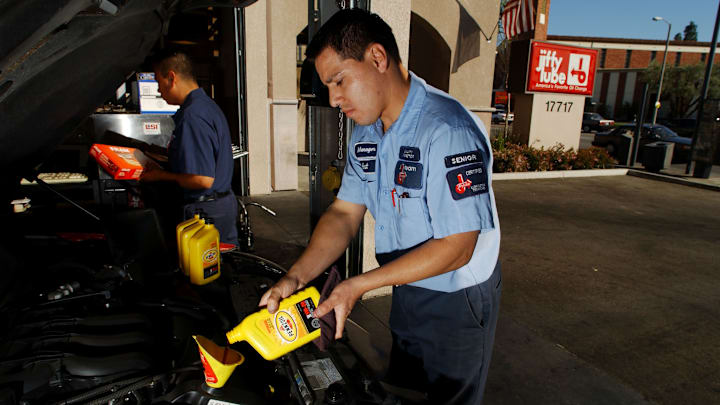What Happens If You Don't Change Your Oil?

Regular oil changes are a critical aspect of vehicle maintenance. Motor oil lubricates the engine’s moving parts, reduces friction, and helps dissipate heat. Failing to change your oil at recommended intervals can lead to severe engine damage, reduced performance, and costly repairs. Here’s a detailed look at what happens if you don’t change your oil.
Firstly, oil degrades over time. As you drive, oil accumulates contaminants such as dirt, metal particles, and combustion byproducts. These contaminants cause the oil to become thicker and less effective at lubricating the engine. Over time, the oil’s ability to reduce friction diminishes, leading to increased wear and tear on engine components. This can cause parts like the camshaft, crankshaft, and bearings to deteriorate faster than they should.
Another critical function of motor oil is to regulate engine temperature. It absorbs and disperses heat generated by the engine, preventing overheating. Old, dirty oil loses its ability to manage heat effectively. As a result, the engine may run hotter than normal, increasing the risk of overheating. Consistent overheating can cause the engine to warp or crack, leading to significant damage that requires expensive repairs or even engine replacement.
Oil also helps keep the engine clean by suspending dirt and particles, preventing them from settling and forming sludge. Sludge is a thick, sticky substance that can clog oil passages and restrict the flow of oil to critical engine parts. Without regular oil changes, sludge buildup can become severe, leading to blocked oil passages and insufficient lubrication. This can result in engine parts grinding against each other, causing significant damage.
Furthermore, neglecting oil changes can impact your car’s performance and fuel efficiency. As oil breaks down and becomes contaminated, it loses its viscosity and lubricating properties. This increases friction within the engine, causing it to work harder and consume more fuel. You might notice a decrease in acceleration, power, and overall performance. Poor lubrication also puts additional strain on the engine, leading to decreased fuel efficiency and higher operating costs.
In the worst-case scenario, failing to change your oil can cause the engine to seize. When oil is not changed for an extended period, it can become so thick and sludgy that it can no longer flow through the engine. Without sufficient lubrication, the engine parts will overheat, expand, and eventually seize up. An engine seizure is often irreparable, requiring a complete engine replacement, which is a costly and time-consuming repair.
In addition to mechanical issues, not changing your oil can void your vehicle’s warranty. Most manufacturers require regular oil changes as part of their maintenance schedule to keep the warranty valid. Neglecting this essential maintenance task can lead to denial of warranty claims, leaving you responsible for expensive repairs.
Regular oil changes also contribute to the overall longevity of your vehicle. An engine that receives timely oil changes will last longer and perform better over its lifespan. This preventive maintenance can save you money in the long run by avoiding major repairs and keeping your vehicle running smoothly.
In conclusion, not changing your oil can lead to severe engine damage, reduced performance, increased fuel consumption, and costly repairs. Regular oil changes are essential for maintaining engine health, ensuring efficient operation, and extending the life of your vehicle. By adhering to the manufacturer’s recommended oil change intervals, you can protect your investment and enjoy reliable performance from your vehicle.